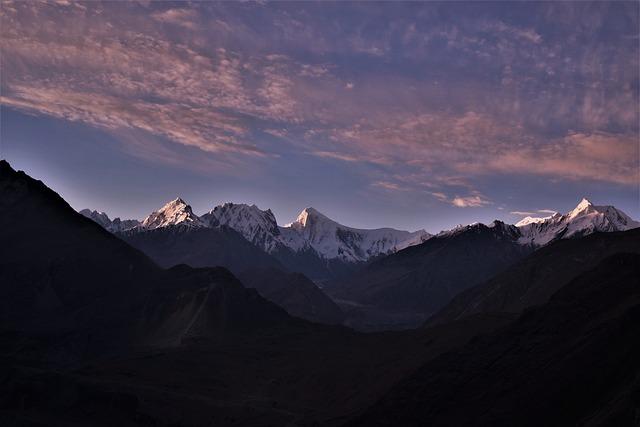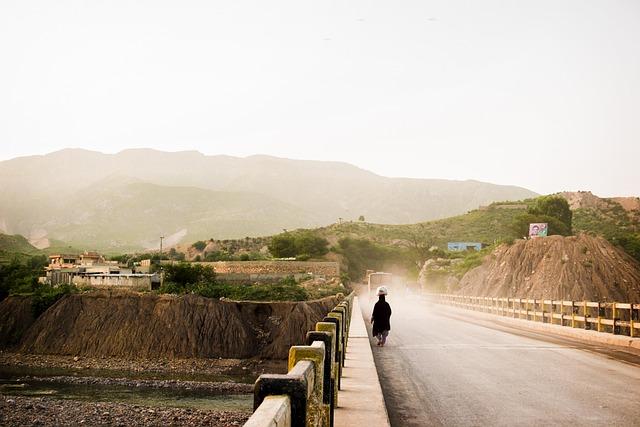Introduction
In an increasingly interconnected world, the dynamics of international relations are constantly evolving, shaped by geopolitical shifts, economic trends, and cultural exchanges. At the crossroads of South Asia and Central Asia lies Pakistan—a nation whose strategic significance has often been underscored yet frequently misunderstood. As global power structures undergo transformation and regional rivalries intensify, Pakistan emerges as a pivotal player, navigating intricate alliances and adversarial landscapes. This article seeks to unravel the complexities of Pakistan’s strategic role in contemporary international relations, examining its relationships with major powers, its influence in regional stability, and its aspirations in a multipolar world. From its historic ties with the United States and China to its engagement in Afghanistan and relations with neighbors like India and Iran, Pakistan’s journey is not only a reflection of its own national interests but also a barometer of broader geopolitical currents shaping our time. Here, we delve into the multifaceted role that Pakistan plays on the global stage, and the implications this has for security, diplomacy, and cooperation in an era marked by both challenges and opportunities.
Emerging Dynamics: Pakistans Geopolitical Significance in South Asia
The geopolitical landscape of South Asia is increasingly shaped by the intricate dynamics of regional powers, with Pakistan standing at the epicenter. Its unique geographical positioning establishes it as a pivotal link between major players in the region, including India, China, and Afghanistan. This positioning allows Pakistan to embrace a multi-faceted role in diplomacy and trade, particularly through initiatives like the China-Pakistan Economic Corridor (CPEC). By facilitating connectivity and economic development, Pakistan is not just bolstering its own economy but also influencing the broader strategic dynamics of South Asia.
Furthermore, Pakistan’s engagement in various alliances and partnerships underscores its significance in contemporary global politics. The nation has fostered relationships with both Western nations and regional powers, presenting itself as a bridge between differing ideological perspectives. Essential elements of its strategic role include:
- Security Cooperation: Collaborative efforts with the U.S. and China in counter-terrorism.
- Economic Partnerships: Enhanced trade relations driving regional integration.
- Diplomatic Initiatives: Active participation in organizations like the SAARC and the Shanghai Cooperation Organization.
| Aspect | Details |
|---|---|
| Geographical Advantage | Connection between Central Asia and South Asia |
| Influence on Trade | Crucial trade routes enhance economic potential |
| Security Role | Key player in regional stability initiatives |

Bridging Alliances: The Role of Pakistan in Global Multilateral Organizations
Pakistan has strategically positioned itself as a key player within various global multilateral organizations, leveraging its diplomatic relationships to enhance its influence and promote regional stability. By actively participating in forums such as the United Nations, the Organization of Islamic Cooperation (OIC), and the South Asian Association for Regional Cooperation (SAARC), Pakistan showcases its commitment to international cooperation and collective security. This engagement allows Pakistan to address pressing global issues such as climate change, terrorism, and economic development while championing the concerns of developing nations.
Furthermore, Pakistan’s involvement in initiatives such as the Belt and Road Initiative and the Shanghai Cooperation Organization (SCO) highlights its pivotal role in fostering regional connectivity and economic collaboration. Through these alliances, Pakistan not only seeks to bolster its own economic prospects but also aims to create a framework for mutual benefit among member states. The following table illustrates Pakistan’s contributions to select multilateral organizations:
| Organization | Contribution | Focus Areas |
|---|---|---|
| United Nations | Peacekeeping Operations | Security, Human Rights |
| OIC | Advocacy for Muslim Rights | Cultural Unity, Economic Cooperation |
| SAARC | Regional Development Projects | Trade, Education, Health |
| SCO | Counter-terrorism Initiatives | Security, Economic Integration |
| Belt and Road Initiative | Infrastructure Development | Trade Connectivity |

Economic Diplomacy: Leveraging Trade for Strategic Partnerships
In the landscape of international relations, economic diplomacy has emerged as a vital tool for nations seeking to bolster their influence and secure strategic partnerships. Pakistan, with its unique geographic and cultural positioning, is well-placed to engage in trade relationships that not only boost its economy but also enhance its political leverage. The nation has made significant strides in navigating complex international markets, which allows it to forge alliances based on mutual economic benefit. Key sectors such as textiles, agriculture, and technology serve as cornerstones of Pakistan’s export strategy, enabling it to create a diversified portfolio that garners interest from a range of partners.
Furthermore, Pakistan’s participation in regional trade agreements emphasizes its commitment to multilateralism and cooperative economics. Through initiatives like the China-Pakistan Economic Corridor (CPEC), the country is transforming its infrastructure and energy sectors, attracting foreign investment while simultaneously strengthening bilateral ties. The potential benefits of these partnerships are manifold, including enhanced job creation, technology transfer, and improved regional stability. By leveraging trade as a foundation for strategic alliances, Pakistan is not only pursuing its economic objectives but also affirming its role as a pivotal player in the geopolitical arena.

Security Concerns and Opportunities: Navigating Regional Tensions for Peace and Stability
In the intricate tapestry of contemporary international relations, Pakistan stands at a critical junction, where regional tensions present both challenges and opportunities for fostering peace and stability. Neighboring countries, each with their distinct historical grievances and geopolitical aspirations, often intensify the already complex security landscape. The evolving dynamics require that Pakistan not only enhances its defense capabilities but also actively engages in diplomatic dialogues aimed at conflict resolution. Key players in the region, including India and Afghanistan, necessitate a balanced approach from Islamabad, focusing on collaboration rather than confrontation. By leveraging its unique geographic position, Pakistan can act as a facilitator for peace talks and economic partnerships, promoting a shift from belligerence to cooperation.
Furthermore, multilateral forums like the Shanghai Cooperation Organization (SCO) and the Organization of Islamic Cooperation (OIC) provide Pakistan with platforms to advance discussions on regional stability. Through these avenues, Islamabad can champion initiatives that address common security concerns, such as terrorism and drug trafficking.
| Opportunity | Description |
|---|---|
| Diplomatic Engagement | Increasing dialogue with neighboring nations to ease tensions. |
| Economic Partnerships | Collaborating on trade initiatives to foster interdependence. |
| Security Alliances | Joining forces against shared threats like terrorism. |
In Conclusion
As we draw the curtains on our exploration of Pakistan’s strategic role in contemporary international relations, it becomes abundantly clear that this nation is more than just a geographic pivot; it is an emerging player in a complex global game of diplomacy and power. Situated at the crossroads of significant political and economic corridors, Pakistan has crafted a unique identity that reflects its diverse interests and the intricate realities of its neighborhood.
In an era marked by shifting alliances and dynamic geopolitical landscapes, Pakistan finds itself navigating a multifaceted role that balances its historical ties with both regional partners and global powers. From its contributions to regional security frameworks to its pivotal position in discussions on trade routes and energy cooperation, Pakistan’s importance cannot be overstated.
As the world looks towards a future that is as uncertain as it is interconnected, the potential for Pakistan to influence global discussions—whether through climate initiatives, counter-terrorism efforts, or trade partnerships—remains considerable. The nation stands at a crossroads, poised to harness its strategic assets for not only its own benefit but also for contributing to a more balanced international order.
Pakistan’s journey through the currents of contemporary international relations will undoubtedly continue to unfold, revealing new opportunities and challenges. It invites us to remain engaged, listen to its evolving narrative, and recognize that in the tapestry of global affairs, every thread counts—especially that of a nation ripe with potential, history, and ambition.



